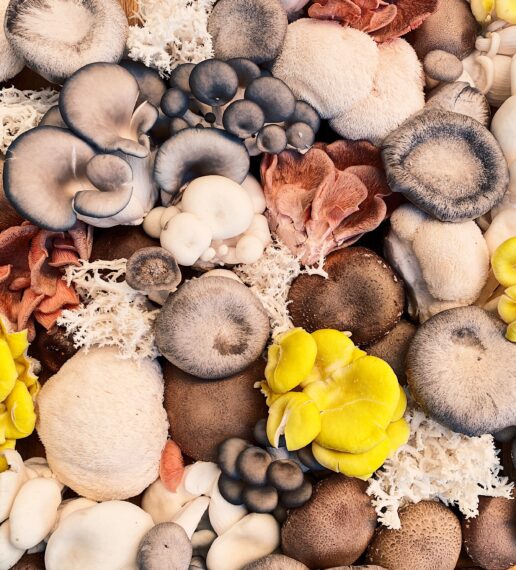Pea Protein: A Complete Protein Free From Dairy
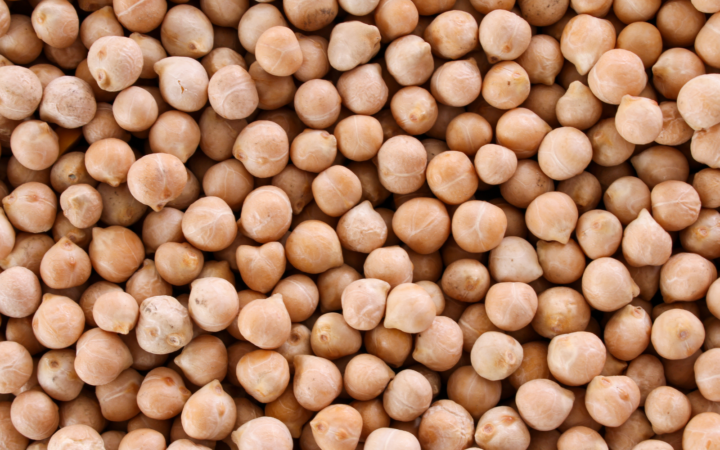
Contents
In an ideal world, we’d all get enough protein and other nutrients through a perfectly balanced diet. But in reality, that’s often easier said than done. Having a nutritious protein powder at the ready is a fast and easy way to boost your protein intake and keep you going in your quest for better health.
There are lots of options when it comes to protein supplements, so how do you choose the right one? Well, it depends on a few important factors.
First, you need to decide if you want an animal or plant-based source of protein. Secondly, if you have allergies or food sensitivities, you’ll want to choose a powder that doesn’t contain any allergens that could cause a negative reaction. Finally, you want to find a high-quality, high-protein powder that offers your daily value of protein with good, clean ingredients.
What Is Pea Protein?
Pea protein is a supplement made by isolating protein from yellow peas and removing the starch and fiber. This concentrated protein substance—called pea protein isolate—is then ground into a fine powder.
Because pea protein is totally plant-based, it’s a great option for vegans and vegetarians. Plus, unlike many other protein powders, it’s naturally gluten-free, dairy-free, soy-free, and does not contain any of the other top food allergens such as peanuts, tree nuts, eggs, fish, and shellfish. (1)
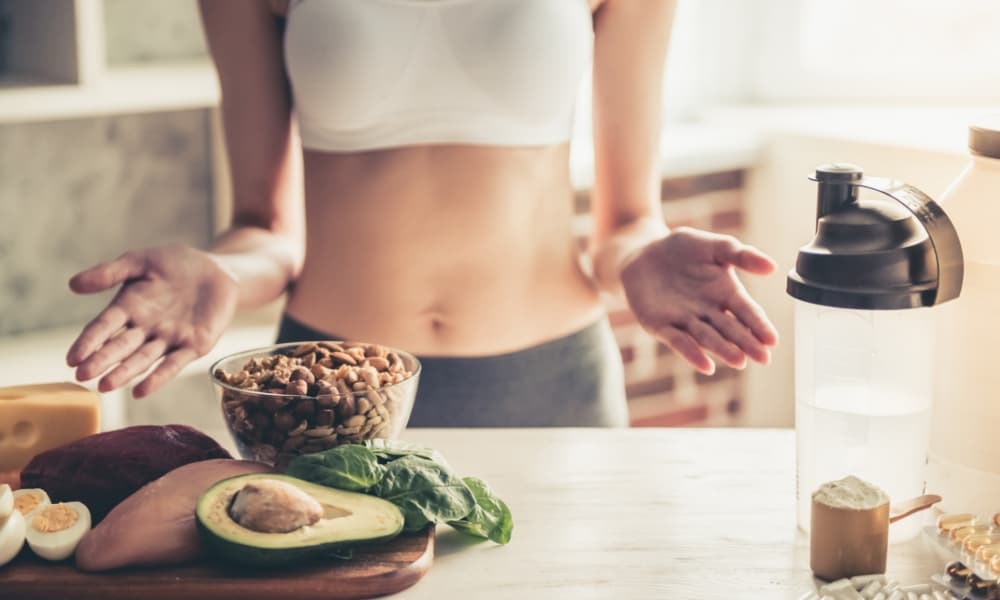
Pea Protein Nutrition
You might remember your mom telling you to “eat your peas” as a kid, and it seems mom was right. Pea protein supplements are made from yellow peas, which are legumes that are loaded with health benefits.
While the exact amount of nutrients and protein content will vary from one pea protein brand to another, you can generally expect about 100 calories, 20 grams of protein and about one to two grams of carbs and fiber per serving (1/4 cup or 27grams).
Is Pea Protein a Complete Protein?
Yes, it’s one of the few plant proteins that is a complete protein. This means it contains all the essential amino acids that your body must get through food, including BCAAs, which are the branched-chain amino acids arginine, leucine, isoleucine, and valine.
Like other amino acids, BCAAs are the building blocks of protein. But these amino acids are especially helpful when it comes to heart health and storing glycogen, which is the main fuel your muscles use during exercise. (2,3) This is one major reason why pea protein is a popular choice among athletes and bodybuilders.
6 Powerful Pea Protein Benefits
Here are the top 6 benefits of Pea Protein Powder.
1. High Protein, Still Vegan
As mentioned, pea protein is a naturally vegan protein, which makes it an excellent option for those who abstain from meat.
This especially important considering that research has determined “potential health concerns do exist from a diet of protein consumed from primarily animal sources.” (4)
2. Good For People With Allergies
Not only vegan, pea protein is also gluten-free, soy-free, and does not contain any of the most common allergies on the food spectrum. (1) Also, given that pea protein powder contains a lot less fiber than whole peas, it’s one of the more easily digestible plant-based proteins you can get. (4)
3. High In Iron
The nutrition facts speak for themselves. Although it varies by brand, pea protein has a solid amount of iron, offering somewhere around 35% of the recommended daily value. (5) However, since iron from plant-based sources isn’t as easily absorbed in the body as animal proteins, (6) be sure to take vitamin C or eat foods high in vitamin C alongside your pea protein powder to boost iron absorption. (7)
4. Pea Protein High In Lysine
Good for bones, lysine is one of the essential amino acid your body needs. While brown rice protein is low in lysine, pea protein has a solid amount, which is good news since lysine improves the body’s ability to absorb calcium (8).
5. Good For Muscles
Because pea protein is a complete protein loaded with BCAAs, it’s an excellent source for building muscle mass. In fact, research shows that it’s on par with taking whey protein powder. (9)
A 2018 review of protein intake found that protein supplementation significantly enhances changes in muscle strength and size with the ideal daily amount being 1.6 grams per kg of body weight. (10)
6. Could be good for weight loss
Since protein helps you feel full longer (11), it’s not surprising that pea protein might also curb your appetite. Research has shown that pea protein powder can provide the same sense of fullness that comes from protein powders using animal sources like eggs, casein, or whey. (12, 13)
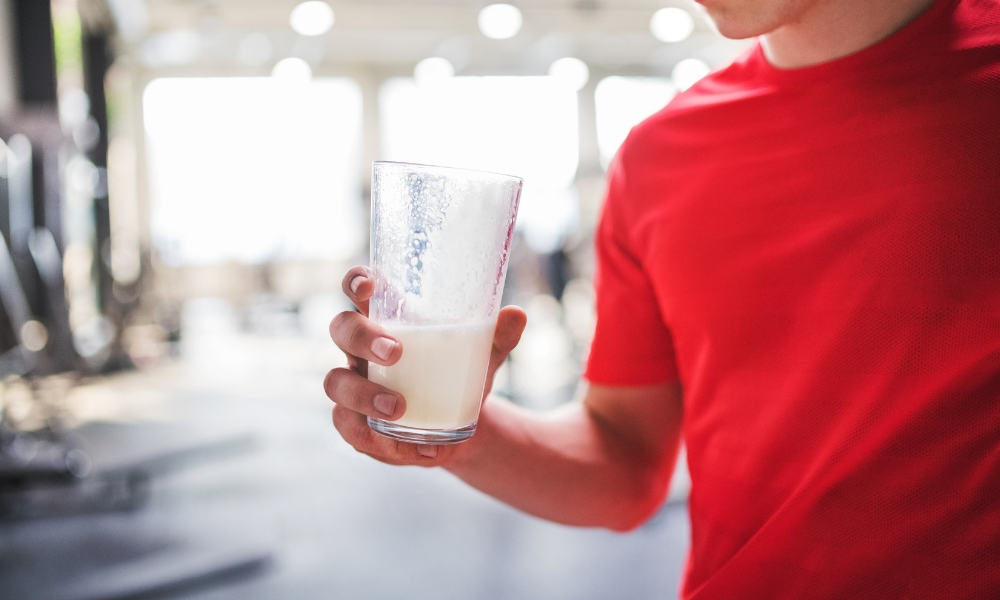
Pea Protein vs. Whey Protein
- Whey protein powder and pea protein powder have a similar amino acid profile—both are complete proteins replete with muscle-building BCAAs.
- Pea protein contains less BCAAs than whey protein, but more of the amino acid arginine, which is good for heart health. (14)
- Studies show that both protein sources provide the same sense of fullness. (12, 13)
- Pea protein is an excellent option for vegans and lactose intolerant folks who want to build muscle.
Pea Protein vs. Soy Protein
- Soy protein and pea protein are both plant-based and dairy-free.
- Both are considered a complete protein as they provide all the essential amino acids your body needs.
- Soy protein is high in phytoestrogens, which can adversely “impact fertility, sexual development, and behavior.” (15)
- Soy is often derived from genetically modified soy plants, which can cause allergic reactions. (16)
Pea Protein vs. Rice Protein
- Brown rice protein powder is soy-free, dairy-free like pea protein.
- While it’s a complete protein that contains all nine essential amino acids, rice protein is low in lysine.
- To compensate for low lysine levels, rice protein can be used in tandem with pea protein.
- Rice protein is higher in methionine than pea protein, which is an essential amino acid critical for normal cell function. (17)
Should Pea Protein Be Organic?
In a word, yes. Just as it’s better to eat organic food whenever possible, it’s important to look for pure organic pea protein with non-GMO ingredients.
Avoid low-quality pea protein powder—or any protein powder—with added sugars, artificial sweeteners, fillers, starch, or any other questionable ingredients.
Is Pea Protein Low FODMAP?
Although peas are a high-FODMAP food, pea protein is not. FODMAP is an acronym for “Fermentable Oligosaccharides, Disaccharides, Monosaccharides and Polyols,” which are carbs that the small intestine doesn’t digest well.
If you suffer from irritable bowel syndrome or other digestive disorders, following a low-FODMAP diet could help as it’s been clinically proven to improve digestive health. (18)
Does Pea Protein Cause Gas?
Since pea protein powder removes most of the fiber and starch from peas, it’s not likely to cause any gas or bloating. That said, every person is different so pay attention to your body and if it becomes an issue, you may have to lower your dosage or eliminate it altogether.
Does Pea Protein Contain Lectins?
Yes, pea protein does contain lectins, but there’s no cause for alarm. While these so-called “anti-nutrients” are found in almost all foods, they’ve gotten a bad rap lately because when consumed in high dosages they can potentially decrease nutrient absorption. (19)
However, the operative phrase is “high dosages,” which means you would have to consume insane amounts of pea protein for this to even be a concern.
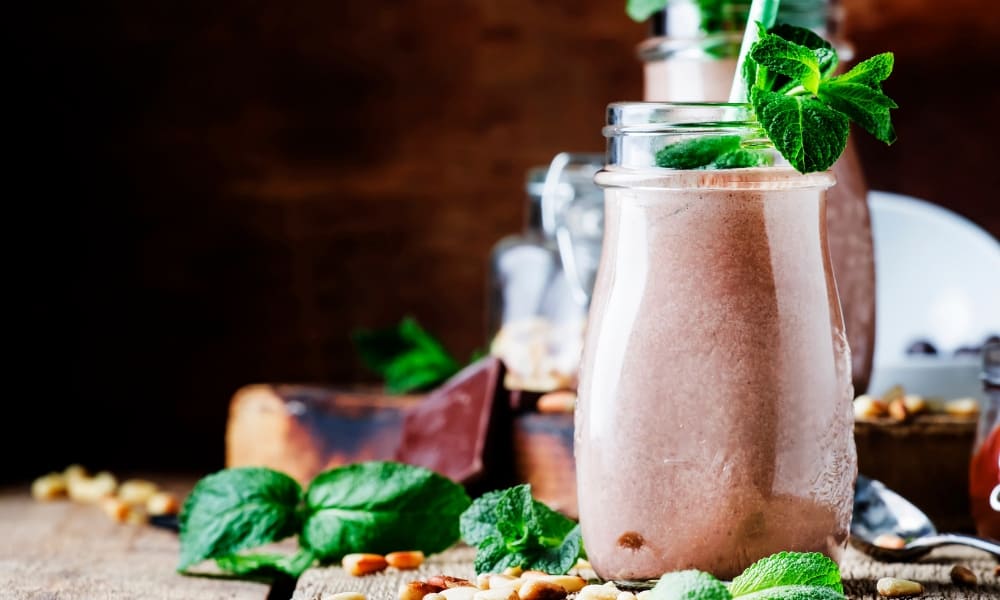
How To Use Pea Protein Powder
- The easiest way to use pea protein powder is to mix it into water, almond milk or any other milk.
- Try mixing it into coffee or tea with creamer and see if you like the flavor.
- Add it to your favorite protein shake recipe, oatmeal, yogurt, acai bowl, or even baked goods.
- While you can use pea protein anytime, it’s best when taken post-workout.
Potential Side Effects of Pea Protein Powder
While pea protein is considered safe to consume and does not have any major side effects, pay attention to your body and take note of any adverse reactions. Pea protein powder can be a bit high in sodium, so make sure you read the ingredient list carefully particularly if you have renal (kidney) conditions. (20)

Give Peas A Chance
Protein is essential for good health. One way to ensure you get enough is by taking a powdered protein.
While there are plenty to choose from, pea protein stands out because it’s vegan, easily digested, safe for a variety of restricted diets, contains all the essential amino acids, and helps maximize muscle building. Plus, it’s good for your heart and might even help you lose weight. With so many benefits, it’s definitely worth giving peas a chance.
